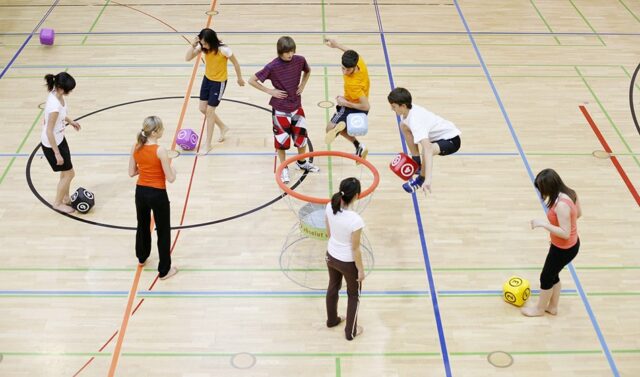The relationship between sports and academic success is a topic of interest and debate. Whereas traditional views tend to oppose academics against athletics, various findings from recent research have established the positive influence that participation in sports has on academic performance. This paper reviews evidence supporting this interrelationship and also presents strategies for using sports in maximizing academic success.
Participation in Sports and Its Effect on the State of Academic Achievement
Improved Cognitive Functions: Constant exercise leads to better cognitive functions and healthy brains. Researchers across numerous studies show that regular exercise has increased the amount of blood flowing to the brain, thereby enhancing one’s memory, concentration, and ability in solving complex problems. For example, in a study done at the University of Illinois, children who participated in any form of physical activity had improved executive functions related to attention and working memory.
Improved Discipline and Time Management: When student-athletes juggle sporting activities together with academic responsibilities, they usually acquire very high levels of discipline and time management. Because sports by their nature are structured—inclusive of practices, games, and training—effective time management is able to translate into skills for keeping better organizational skills and a more disciplined approach toward academic work.
It can help to enhance the motivation and interest of students towards academic studies. Moreover, sports provide a sense of achievement by setting targets, which is then carried over to academic pursuits by putting students in the mindset of setting targets and achieving them. Additionally, the encouragement and teamwork within sports teams will enhance attitude toward learning.
Reduced levels of stress and anxiety: Exercise is bound to reduce levels of stress and anxiety, which often improve the general outlook on academics. Physical activity triggers the release of endorphins that help alleviate stress and act on mood. This reduction in stress will help one to focus better and have a positive outlook towards academic challenges.
Strategies on integration of sports and academics:
Places of Support: It is not hard to envision a school or any other academic institution that can be designed to support both sports and academic excellence. The supporting mechanisms would include providing academic resources and tutoring for the student-athletes, flexibility in academic scheduling around the demands of sports, and nurturing an understanding among coaches and educators.
Encouragement towards balanced participation is important in making students participate in sporting activities while at the same time maintaining a focus on academics. Emphasis on academic importance over achievement in sports should always be put across the board. Students can further be helped in managing their academic and athletic responsibilities through advice so as to maintain balance.
Using Sports Success to Drive Academic Success: The academic efforts of the students can be energized by the schools using the sporting achievements as a drive. This will ensure that good academic performances are awarded, basing on the success attained in sports. For example, the school can give some academic awards to those student-athletes who excel both in academics and sports.
Programs for Academic Support: Any programs that are an aid to the athletes academically form a bridge between athletes and academics. Such programs could include tutoring, study halls, or mentoring, enabling the athletes to get any kind of support they need to excel in academics as they pursue sports.
Balancing Commitments: The main challenge student-athletes face is their ability to balance time between sports and academics. In many ways, it can be said that some students overcommit to sports at the expense of their academics. These students must develop good time management skills, and schools are responsible for making sure students can seek help in balancing these demands.
Preventing Burnout: The pressure to excel in both sports and academics may be a cause of burnout for student-athletes. Their schools and parents need to be alert for signs of burnout and to make resources available to the students on how to deal with stress so that they remain healthy and balanced about their pursuits.
Fair Access and Equity: The school should be working towards each student having an opportunity to engage in sports and equally be able to access academic resources, regardless of their background or their socio-economic status. As such, schools have to break down barriers to sports participation and to academic support.
Monitoring Academic Performance: There should be regular monitoring of academic performance to ensure that sports participation does not deteriorate the grades of students. Educators and coaches work collaboratively in noting whether students are having any problem academically so that interventions could be provided if necessary.
Conclusion
The relationship between sports and academic success is complicated but increasingly recognized for its positive impact. It can improve cognitive functioning, discipline, motivation, and stress management, all of which help improve academic performance. Thus, the school can help the student succeed both as a sportsperson and in academics by coming up with support strategies and atmospheres that balance the two. The integration of sports and academics is worthwhile and can bring holistic development with a more enriching experience gained from education.








